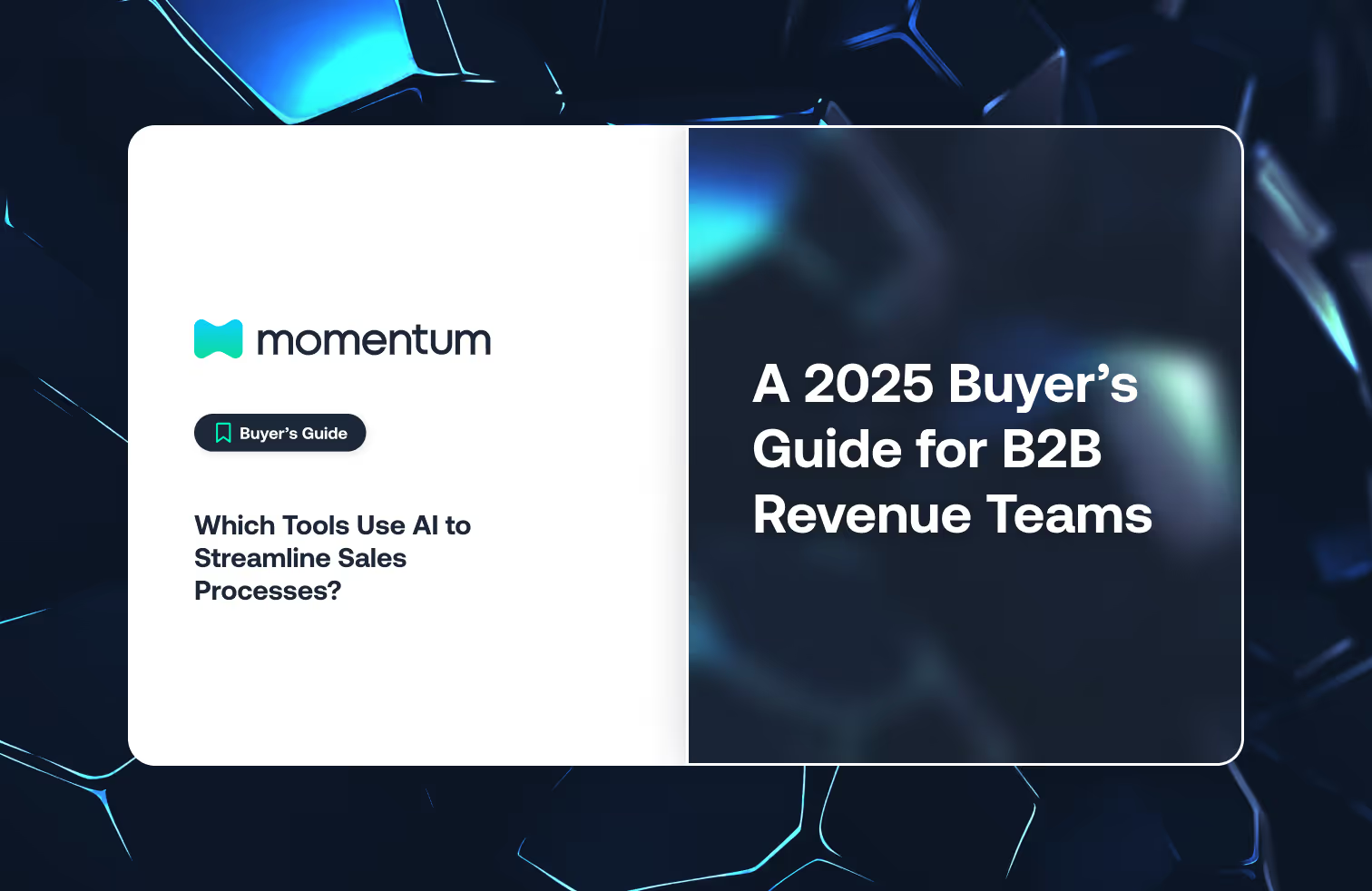Enterprise sales teams are under pressure to deliver predictable growth in an environment that’s more competitive, more complex, and more digital than ever. Sales leaders need reps to execute flawlessly across dozens of interactions — calls, emails, CRM updates, LinkedIn messages — all while capturing data, aligning cross-functional teams, and improving conversion rates.
But here’s the catch: most sales tools haven’t evolved fast enough. CRMs still require manual data entry. Outreach tools automate quantity, not quality. And conversation intelligence platforms provide transcripts but no action. That’s where AI-powered tools come in: designed to eliminate repetitive tasks, surface real-time insights, and turn every interaction into an opportunity to accelerate pipeline and close deals faster.
The best AI tools do more than automate workflows — they reshape the way sales professionals operate by embedding intelligence into every stage of the sales process. This guide breaks down what to look for, who’s doing it well, and where Momentum fits in.
What Are AI Sales Tools?
AI sales tools use artificial intelligence, machine learning, and natural language processing to improve key sales functions: capturing sales data, generating insights, streamlining follow-ups, and optimizing pipeline management.
They integrate across CRMs, sales engagement platforms, call software, and Slack, helping sales reps work smarter, not harder.
Many people assume AI tools are just for automating emails or summarizing sales calls. But the best platforms do much more:
[blue-section]
- Enrich CRM data automatically
- Analyze customer sentiment and sales conversations
- Predict which potential customers are most likely to convert
- Drive automated outreach with personalized emails
- Help managers forecast deals using predictive analytics and historical data
[/blue-section]
In 2025, the top tools should be the ones that deliver data-driven insights that boost productivity, eliminate manual tasks, and improve the customer experience across the sales pipeline.
Common Pain Points in Sales Workflows
Even with modern tools, RevOps and GTM teams are still wrestling with:
[blue-section]
- CRM data decay: Salespeople forget to log emails, calls, and meetings, leading to incomplete data.
- Disjointed tools: Sales activities happen across Gmail, Zoom, LinkedIn, Slack, but insights stay siloed.
- Repetitive tasks: Manual data entry, deal updates, and follow-up emails steal hours every week.
- Low forecasting accuracy: Leaders rely on incomplete data or guesswork, hurting sales performance.
- Missed follow-ups: Without automated workflows, sales reps drop leads or lose momentum on key accounts.
[/blue-section]
Solving these pain points requires more than just more tools. It demands intelligent systems that work in real time, across platforms, with minimal rep effort.
What to Look For: Key Evaluation Criteria
1. CRM Automation
What it should do: Automatically sync emails, meetings, call notes, and tasks into your CRM (like Salesforce or HubSpot).
----------------
Why it matters: Clean CRN data is the foundation for accurate forecasting, pipeline reviews, and performance tracking.
------------------------------------------------
What to avoid: Tools that require reps to manually trigger syncs or copy/paste updates.
2. Conversation Intelligence
What it should do: Capture, transcribe, and analyze sales calls, highlighting key topics, risks, and next steps.
---------
Why it matters: Coaching, deal tracking, and lead qualification are far easier with full context on every interaction.
------------------
What to avoid: Call summaries that lack structure or fail to integrate with your tech stack.
3. Predictive Lead Scoring & Forecasting
What it should do: Use behavioral data, customer interactions, and past performance to forecast outcomes or score leads.
---------------------------------------------
Why it matters: Helps prioritize outreach and gives leaders clarity on which deals are most likely to close.
---------------------------
What to avoid: Static scoring models with no transparency or customization.
4. Automated Follow-Ups and Email Sequences
What it should do: Auto-generate follow-up emails, recap notes, and launch targeted email sequences post-call.
--------------
Why it matters: Consistent outreach drives higher conversion rates without overburdening your reps.
--------------
What to avoid: Generic templates that feel spammy or irrelevant to your customer relationships.
5. Slack-Based Workflow Triggers
What it should do: Deliver alerts, trigger tasks, and route updates across GTM teams inside Slack.
-----------------------
Why it matters: GTM execution lives in Slack. Real-time notifications keep teams aligned and responsive.
-------------
What to avoid: Clunky integrations that don’t support dynamic triggers or contextual insights.
6. Data Enrichment and Intelligence
What it should do: Pull in public and proprietary datasets to fill in company size, industry, buyer intent, and more.
---------------------------
Why it matters: Helps salespeople tailor messaging, improve lead generation, and personalize outreach.
-----------------
What to avoid: Over-enrichment without data quality controls.
7. Ecosystem Integrations
What it should do: Connect seamlessly with your existing tech stack, from Zoom to LinkedIn to Slack and your CRM.
--------------------
Why it matters: AI is only powerful if it has access to signals from across your revenue ecosystem.
Top Tools That Use AI to Streamline Sales Processes
Let’s break down the top AI-powered tools sales professionals are using in 2025 to streamline the sales process, eliminate manual tasks, and improve pipeline execution:

::autoboxgrid2
[LEFT]
Best for
GTM teams that want to automate sales execution and surface real-time buyer signals
Pricing
Flexible
Key features
AI-powered call summaries that auto-update Salesforce. Slack-native alerts for deal risks, timeline shifts, and product mentions. AI-generated follow-ups and post-call workflows.
[RIGHT]
Strengths
Momentum streamlines the entire sales process — from sales calls to follow-up emails — with real-time automation. It operates in Slack, updates your CRM automatically, and routes actionable insights across Sales, CS, and RevOps. No dashboards required.
::endautoboxgrid2
2. Gong
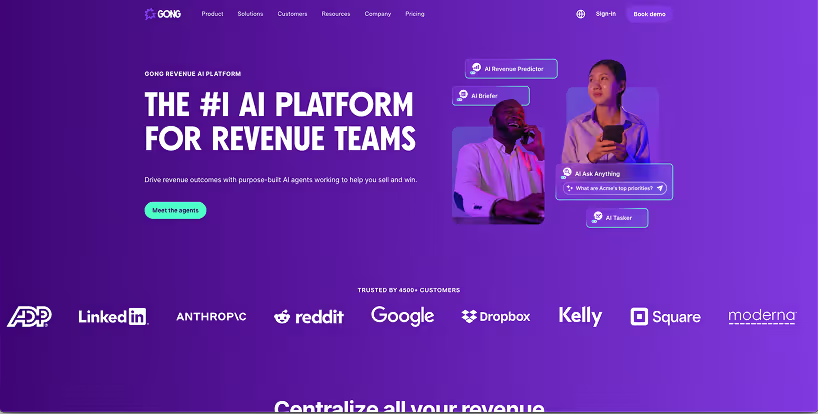
::autoboxgrid2
[LEFT]
Best for
Teams focused on deep conversation intelligence and scalable coaching
Pricing
Custom (typically $1K+/user/year)
Key features
AI-powered transcription and analysis of sales conversations. Risk scoring and engagement tracking. Coaching recommendations based on rep behavior.
[RIGHT]
Strengths
Gong delivers unmatched visibility into sales activities with full-context insights from every call. It’s ideal for sales professionals and managers aiming to improve conversion rates and refine sales strategies.
Considerations
Not built for real-time alerts or orchestration. Requires manager involvement to extract coaching value.
::endautoboxgrid2
3. Salesforce Einstein
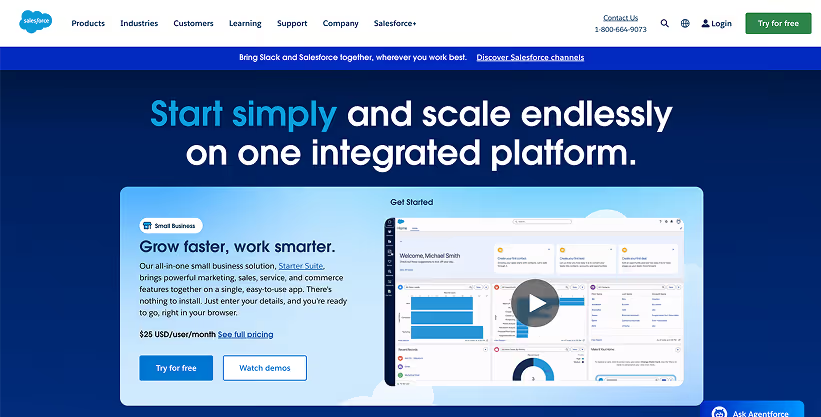
::autoboxgrid2
[LEFT]
Best for
Companies already standardized on Salesforce needing embedded AI
Pricing
$50–$75/user/month add-on
Key features
Predictive lead scoring and sales forecasting. Einstein GPT for content generation. CRM-native AI decision support.
[RIGHT]
Strengths
Gong delivers unmatched visibility into sales activities with full-context insights from every call. It’s ideal for sales professionals and managers aiming to improve conversion rates and refine sales strategies.
Considerations
Not built for real-time alerts or orchestration. Requires manager involvement to extract coaching value.
::endautoboxgrid2
4. Salesloft
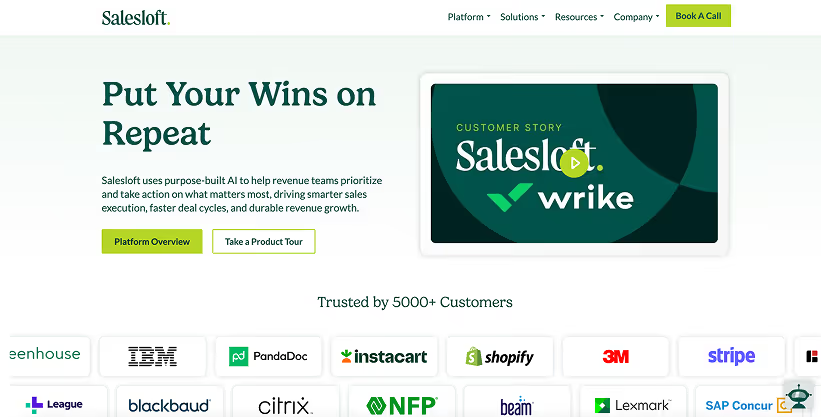
::autoboxgrid2
[LEFT]
Best for
Sales teams focused on outbound engagement and AI-driven cadences
Pricing
Starts at $125/user/month
Key features
Guided email sequences with AI recommendations. Call sentiment analysis and rep coaching tools. Salesforce and LinkedIn integrations.
[RIGHT]
Strengths
Salesloft helps sales reps streamline outreach, optimize email templates, and improve lead qualification using real-time engagement signals. It’s great for SDR and AE teams balancing volume with personalization.Elevates sales emails with high-converting suggestions. Good for outbound-focused SDRs and AEs.
Considerations
More outbound-focused. Less coverage of post-sale workflows or customer success handoffs.
::endautoboxgrid2
5. Outreach

::autoboxgrid2
[LEFT]
Best for
High-volume sales teams managing complex multi-channel outreach
Pricing
~$100+/user/month
Key features
AI assistant (Kaia) for live meeting insights and follow-up generation. Smart pipeline views and sales engagement analytics. Integrated call, email, and task automation.
[RIGHT]
Strengths
Outreach is purpose-built for sales automation at scale. It combines data-driven insights and execution layers to help reps stay on task and accelerate conversion rates.
Considerations
Requires upfront configuration and process rigor to unlock full value.
::endautoboxgrid2
6. HubSpot + AI Add-ons
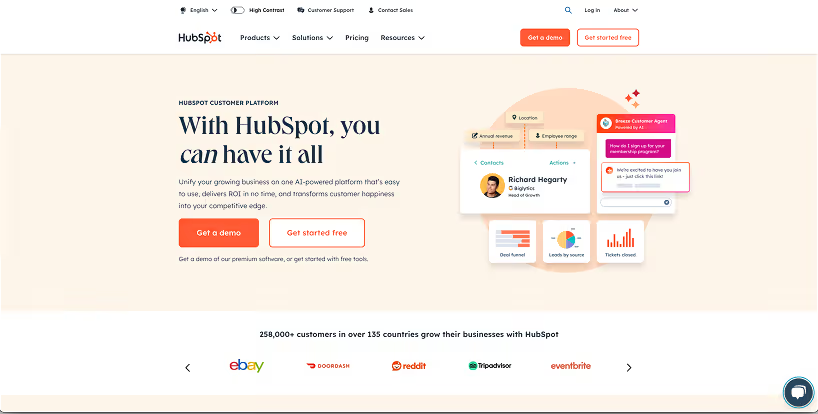
::autoboxgrid2
[LEFT]
Best for
SMB and mid-market companies seeking a unified GTM platform with embedded AI
Pricing
Free to $1200+/month depending on tier and contacts
Key features
AI-powered email writing, chatbots, and lead scoring. Unified contact views and deal pipelines. Seamless social media and marketing workflows.
::autoboxgrid2
[LEFT]
Strengths
HubSpot brings sales, marketing, and CS together with intuitive apps and built-in automation tools. AI features support follow-ups, customer interactions, and sales data enrichment out of the box.
Considerations
Best for smaller orgs. Less flexible when it comes to customizing advanced GTM workflows or analytics.
::endautoboxgrid2
7. ChatGPT (via Zapier or Custom Integration)
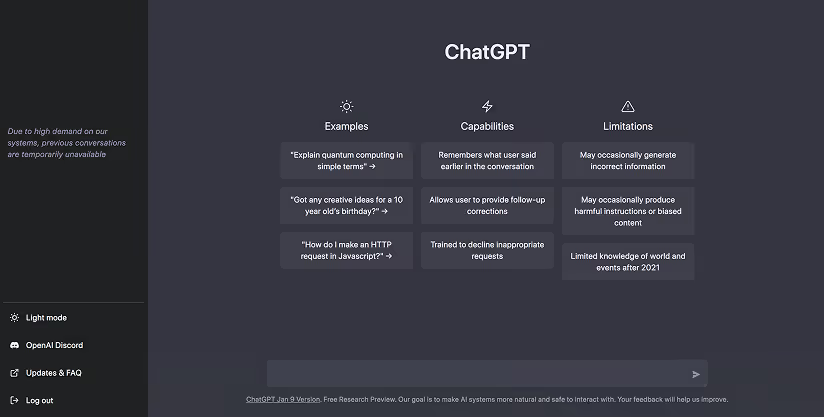
::autoboxgrid2
[LEFT]
Best for
RevOps teams and engineers building flexible, AI-driven workflows on top of existing tools
Pricing
Free to $20/user/month for ChatGPT, plus Zapier/API costsontact for enterprise quote
Key features
Prompt-based drafting for personalized emails, follow-ups, and message templates. Lead research, enrichment, and summarization. Can be embedded into CRMs or Slack via low-code tools.
Strengths
ChatGPT is the most versatile tool in the market for generating sales content, summaries, and insights. It’s excellent for custom use cases like automating lead management, sales conversations, or data clean-up.
Considerations
Not turnkey. Requires prompt engineering and a strong integration layer to avoid manual rework or fragmented workflows.
Feature Comparison Table
::autotable
::columns=8
Tool
Best For
CRM Automation
Call Intelligence
Lead Scoring
Slack Integration
Follow-Up Automatio
AI Forecasting
Momentum
GTM orchestration
✅
✅
✅
✅
✅
✅
Gong
Call analytics + coaching
❌
✅
✅
❌
❌
✅
Salesforce Einstein
CRM-native AI
✅
❌
✅
❌
❌
✅
Salesloft
Sales engagement workflows
✅
✅
✅
❌
✅
✅
Outreach
High-scale SDR workflows
✅
✅
✅
❌
✅
✅
HubSpot
SMB/mid-market GTM
✅
❌
✅
❌
✅
✅
ChatGPT
Custom automation
⚠️
❌
⚠️
❌
✅
⚠️
::footerrow ✅ Full Native Support ;; ⚠️ Partial or basic functionality ;; ❌ Not Supported
Why Momentum Is Different
Momentum is not a replacement for your CRM, outreach tool, or call recording platform. It’s an orchestration layer that brings your tech stack together and turns real-time signals into automated action.
[white-section]
- Real-time alerts: Deal risks, churn signals, and product mentions instantly routed to Slack
- AI summaries + CRM updates: Every call automatically turned into Salesforce-ready summaries
- Follow-up automation: AI drafts follow-ups with key context so reps don’t drop the ball
- Slack-native execution: Alerts trigger workflows without toggling platforms or checking dashboards
- Cross-team visibility: Automatically syncs customer signals across Sales, CS, and Marketing
[/white-section]
Momentum helps salespeople build customer relationships, improve conversion rates, and eliminate routine tasks — all without logging into yet another tool.
Ready to See It in Action?
The best AI sales tools don’t just automate. They make every part of the sales workflow faster, smarter, and more impactful. And Momentum is built to work in your flow — across calls, CRM, Slack, and emai l— to help your team streamline, act, and win.
[blue-section]
Book a demo to see how Momentum helps sales teams boost productivity, optimize pipeline, and execute flawlessly.
[/blue-section]



.svg)

